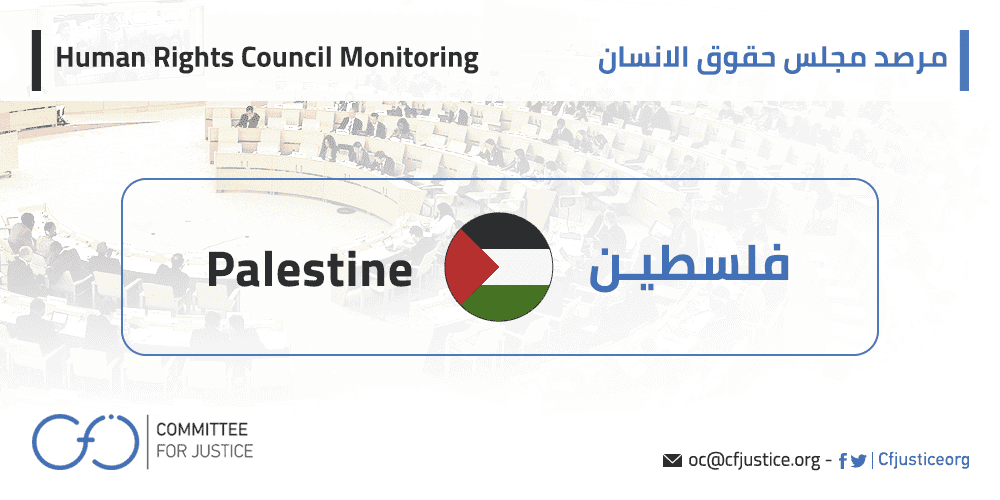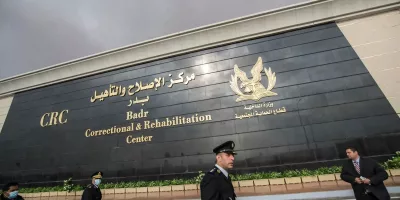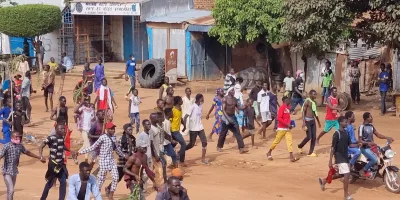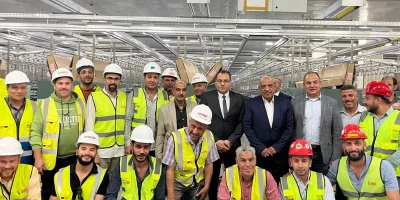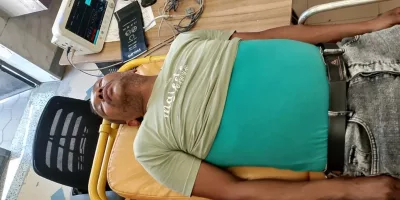News briefing
Translated and edited by: Committee for Justice
Geneva: October 3, 2021
The Human Rights Council in Geneva held public discussions on the Universal Periodic Review and the human rights situation in Palestine and the other occupied Arab territories.
The allocation of water resources is unfair:
The Council heard a presentation by the High Commissioner for Human Rights on the allocation of water resources in the Occupied Palestinian Territory, including East Jerusalem, and an oral update by the High Commissioner on the implementation of resolution S-30/1.
Speaking at the general debate on the UPR were, Slovenia on behalf of the European Union, Malaysia on behalf of the Association of Southeast Asian Nations, Pakistan on behalf of the Organization of Islamic Cooperation, Azerbaijan on behalf of the Non-Aligned Movement, and several countries including Belgium, India, Venezuela and Indonesia , and Bahrain.
Christian Salazar Folkmann, Director of the Field Operations and Technical Cooperation Division at the Office of the High Commissioner for Human Rights, presented the report on the allocation of water resources in the occupied Palestinian territories. The report found that water was not sufficiently and consistently available in the West Bank, including East Jerusalem, with approximately 660,000 Palestinians who have limited access to water.
The report also found that water distribution is unfair between Palestinians and Israelis. The water quality in Gaza was low, and 96% of households received water that did not meet drinking water quality standards.
Theft of Palestinian water:
The State of Palestine, as a concerned state, said: “Israel’s theft of water deprived Palestinians of the right to water. Ninety-seven per cent of the water available in Gaza could no longer be used. The share of water available to Israeli settlers was not the same as what was available for Palestinians.”
“Israel continued to Jewdify Jerusalem and expel the Palestinian population. The 13-year blockade of Gaza had prevented reconstruction efforts and was an obstacle to distributing vaccines. All of these practices were a systematic apartheid type policy”, Palestine added.
Also, as a concerned country, Syria said that Israel has strengthened its occupation through settlements and expansion, as well as confiscation of land, looting of natural resources and transferring people to occupied territories in order to systematically change the demographics in complete disregard of the rules of occupation and its obligations under international law and the Geneva Conventions, Article 7 relating to the human rights situation in Palestine and the other occupied Arab countries is an important tool for monitoring and documenting violations committed by Israel.
A condemnation of the grave Israeli violations:
In the general debate on the human rights situation in Palestine and other occupied Arab territories, some speakers strongly condemned the continuing grave violations committed by Israel, saying that Israeli settlements are the core of the colonial occupation and have only been achieved through the commission of war crimes and crimes against humanity, as expansion of settlements continued to deprive Palestinians of vital water resources necessary for an adequate standard of living, and a number of speakers deplored the continued boycott by some countries of Article 7 dealing with the human rights situation in Palestine and the other occupied Arab territories.

